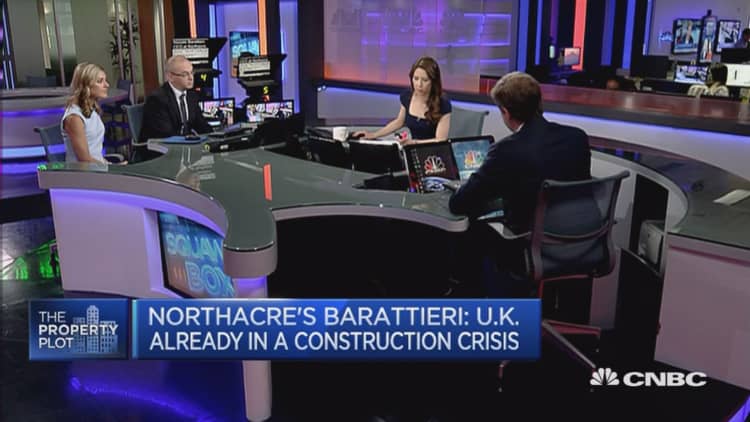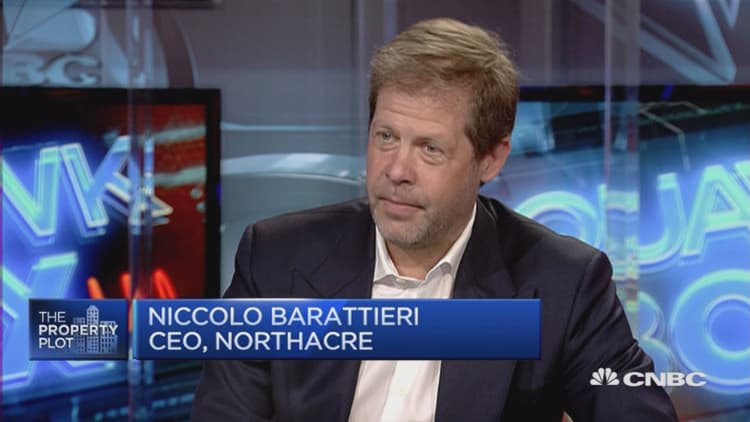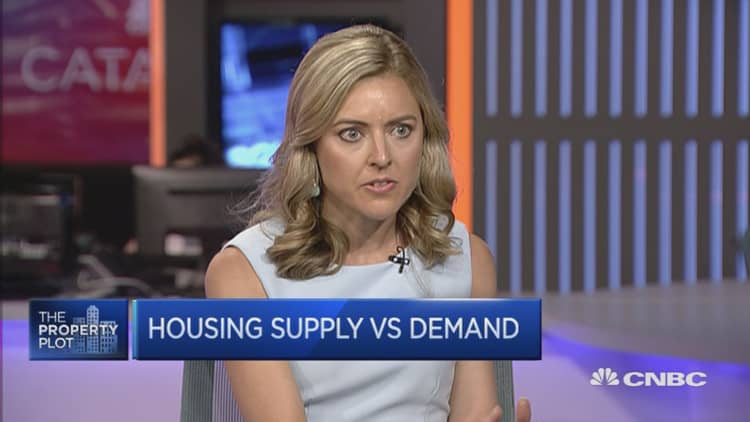


Even for a sector accustomed to sensationalist headlines, U.K. property has sparked its fair share of scrutiny in the run-up to the Brexit vote. Amid the news and views, where does the market stand?
Real estate activity has largely ground to a halt, as can be seen in the paucity of transactions in both residential and commercial markets. But all the blame cannot be laid at Brexit's door - it is difficult to separate pre-Referendum nerves from a loss of appetite due to the stamp duty on additional properties introduced on April 1st, ongoing geopolitical uncertainty, global economic weakness and cross-asset class market volatility.
Given the slowdown in transactions started many months earlier in the prime residential market, the follow-on negative pricing impact continues in this niche, while a dearth of available properties has so far supported average values at lower price points.
Meanwhile, for those property deals already under way, the popularity of "Brexit clauses" for commercial property transactions keeps growing and is starting to be seen, admittedly at a lower rate, in residential sale contracts, particularly in the luxury space.
Many believe that in the case of a Remain victory, we'll see a rush of deals as side-lined money is put to work. However, supply and demand factors also have as great an influence on post-referendum activity.
Demand—too many variables
The U.K. Treasury has warned of a 10 percent - 18 percent hit to house prices by 2018 in the case of a Brexit, partly due to its assumption of cripplingly high mortgage rates.
However, this scenario rests on myriad projections regarding interest rates, domestic economic and job market resilience, outcome of international trade renegotiations, redesigned immigration policies, currency dynamics, global risk appetite … the list goes on.
These factors cannot be reliably predicted - this is why each side is able to argue for markedly different market outcomes in the case of a Brexit. For all those anticipating doom-and-gloom scenarios of pummeled property prices due to redundancies, wage cuts and interest rate spikes, there are those who believe a sterling sell-off that will entice a wave of foreign money to drive prices sharply higher.
Luxury developer Ko Barclay of KOIAN is focused on the immigration issue above all, arguing a Brexit is necessary to solve the U.K.'s housing crisis. According to Barclay: "Either you relax planning laws to build more homes or you stem demand by controlling immigration which can only be done by leaving the EU. How much population density can this country take?"
Supply—skills shortage persists
The other side of the immigration equation is supply dynamics. The country already faces a chronic labor shortage, as highlighted in an open letter organised by Building magazine in favor of staying in the union. A recent survey of over 1,300 construction professionals organised by the publication estimated two-thirds back Remain. The sector has an immigrant workforce of around 12 percent of which the vast majority is from an EU state.
According to Niccolo Barattieri di San Pietro, CEO of Northacre, "Many of the skills required for construction require specialized training so it could take several years and rounds of proactive policy revisions to build out a sufficient domestic workforce pipeline. Additionally, in the next 10-15 years, the available labor force will be further hit by retirements given the high average age of subcontractors."
In addition to labor concerns, it is feared EU funding channeled to the U.K. and directed at urban development will be withdrawn without an alternative replacement source.
Lord Bamford, Chairman of JCB, and construction entrepreneur Fred Story are two industry tycoons supporting the Leave camp. However, their arguments focus on issues such as sovereignty and removing Brussels' bureaucracy rather than disputing the construction skills crisis is real.
Just as on the demand side, however, the hypothetical post-Brexit implication is far from clear. In the words of Guy Leonard, Group Board Director at Mott MacDonald: "A lot of young colleagues have come here from Europe, trained and obtained qualifications. We don't know what their status would be under a Brexit. Could they stay? Would they be subject to quotas? It's potentially hugely destabilizing for the whole construction sector."



